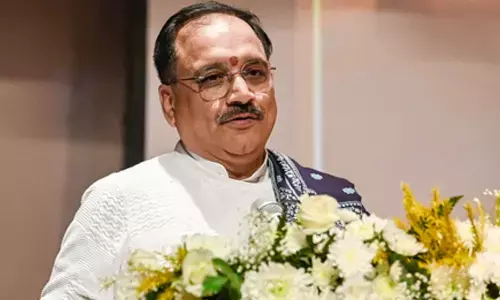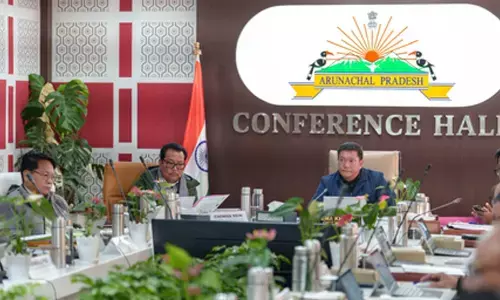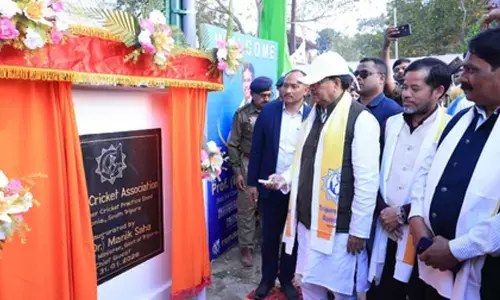G-20 talks trade, finance as Japan readies for Osaka summit

Japan, the world's third-largest economy, is hosting the G-20 for the first time since it was founded in 1999.
Fukuoka: Trade and economy ministers of the Group of 20 major economies met Sunday in Japan to discuss ways to reorder trade rules and finances in an era of technological change and protectionism.
The meetings of financial leaders in the southern city of Fukuoka and of economic ministers in Tsukuba, near Tokyo, are aiming to forge a consensus on a range of issues to be endorsed by leaders who will meet in late June in Osaka.
The central bank governors and other financial regulators meeting in Fukuoka flagged risks from upsets to the global economy as Beijing and Washington clash over trade and technology.
US Treasury Secretary Steven Mnuchin said in a tweet that he had met with his Japanese counterpart, Finance Minister Taro Aso, and discussed "the ongoing close cooperation between the U.S. and Japan across a number of economic and security issues."
Japan, the world's third-largest economy, is hosting the G-20 for the first time since it was founded in 1999.
The venue for the annual financial meeting, Fukuoka, is a thriving regional hub and base for startups. Both Aso and Japan's central bank governor, Haruhiko Kuroda, kept their comments on concerns over the trade clash between the U.S. and China mild.
"With prospects for the resumption of China-U.S. talks unclear, there's a risk that if this is not resolved trust in world markets will be damaged," Aso said Saturday.
Mnuchin acknowledged concern among fellow leaders over slowing world growth, though he said it was not due to the standoff with Beijing over trade and technology.
He and other members of President Donald Trump's administration contend that the ripple effects of the billions of dollars in tariffs imposed by Washington on Chinese exports over the past year are creating new business opportunities for other businesses in the U.S. and other countries.
But Mnuchin, who has co-led Washington's side in the stalled trade talks with US Trade Representative Robert Lighthizer, said, "I'm hearing concerns if we continue on this path there could be issues. There will be winners and losers."
As is typical of pre-summit gatherings, the G-20 officials were haggling over the wording of a communique to be issued as meetings wrap up Sunday.
The communique will be incorporated into proposals to be endorsed by the top leaders in Osaka. That June 28-29 meeting is likely to get overshadowed by a planned meeting between Trump and Chinese President Xi Jinping.
Mnuchin said that while he was discussing trade issues with China's central bank governor at the talks in Fukuoka, he did not expect talks, stalled now for over a month, to resume before then.
Major progress, and a decision on whether Washington will impose 25% tariffs on $300 billion worth of Chinese exports, will depend on the outcome of that meeting, he said.
Much attention at G-20 meetings this year is focusing on how to adapt tax systems and regulation of increasingly digital economies.
Ensuring that governments capture a fair share of profits from the massive growth of businesses like Google and Amazon has grown in importance over the many years the G-20 finance chiefs have been debating the reforms aimed at preventing tax evasion and modernizing policies to match a financial landscape transformed by technology.
Mobile banking, big data, artificial intelligence and cloud computing are among many technologies that are expanding access to financial services for many people who in the past might not have even used banks.
The officials meeting in Tsukuba, a research hub about an hour outside Tokyo, were also focusing their discussions on the digital economy, as well as trade.
The G-20 group includes Argentina, Australia, Brazil, Canada, China, France, Germany, India, Indonesia, Japan, South Korea, Mexico, Russia, Saudi Arabia, South Africa, Turkey, the United Kingdom, the United States and the European Union.














